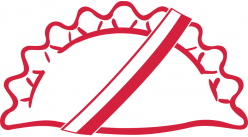Meaning:
Lit: “to have a strong head”. And it’s not about being very clever or withstanding lots of injuries. When Poles say that someone has a strong head they definitely mean the person can take lots of alcohol in and still not become (or before becoming) severely intoxicated.
This attribute is considered an important asset and some people pride on their strong heads. Such people usually stay upright or at least in a sitting position while all the others drop (in Polish “spadają”) when levels of C2H5OH in their blood reach a certain limit.
The most common denominator the strong head is measured with is a volume of vodka divided by number of people during one party. For instance: “zrobiliśmy litra na dwóch” (“we did a litre per two”) means a person drank half a litre of a 40% ethanol, which is considered a good benchmark.
Logically, the opposite is a “słaba głowa”, a weak head. A person with a weak head may start babbling and stagger after two beers.
Examples:
Borys Jelcyn najbardziej lubił… czystą wódkę z kiszonymi ogórkami. Znany był zresztą z upodobania do picia alkoholu, chociaż kremlowscy kucharze wspominają, że i Gorbaczow miał mocną głowę. Jelcyn nie zmieniał wiele w menu, za to wybierał najprostsze potrawy. Z zapałem pałaszował ogórkową, barszcz, kapuśniak i pierogi z wielką ilością farszu.
Zanim zaczęłam dietę miałam bardzo mocną głowę, moi koledzy zachwalali, że zawsze mogą ze mną usiąść i porządnie się napić. A teraz wypiję 2,3 piwa i już jest mi baaardzo wesoło. Już nie nadaję się do tego sportu. Ale to dobrze, przynajmniej ekonomicznie i kcal w tyłek nie włażą.
Za posiadanie “mocnej głowy” można zapłacić wysoką cenę. – Osoby wyjątkowo odporne na działanie etanolu są bardziej narażone na rozwój nałogu alkoholowego – twierdzi kierujący badaniami dr Steve McIntire.
